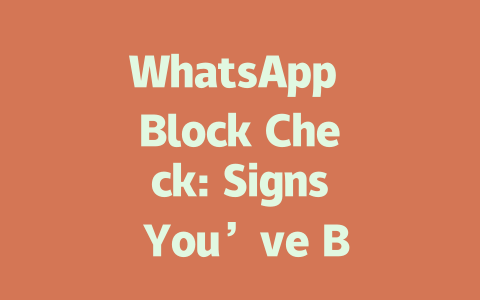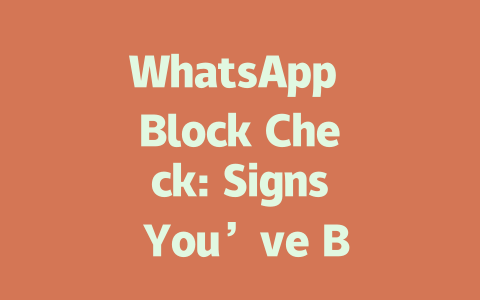How to Master Latest News Searches
Let’s start with the basics. Why do we struggle to find the latest news sometimes? Often, it’s because we don’t know how to refine our searches effectively. For example, think about the last time you typed something like “world news” into Google. Did you get overwhelmed by millions of results? That’s because the search was too broad. Now, let’s break down the steps to make your searches more precise.
Step 1: Choosing the Right Keywords
When it comes to finding the latest news, choosing the right keywords is crucial. Here’s a tip: instead of generic terms, go for specific ones. For instance, if you’re interested in technology updates, try “latest AI breakthroughs 2025” instead of just “technology news.” The more specific you are, the better Google’s search robot understands what you want.
I learned this trick from a colleague who runs a tech blog. He told me he used to lose hours sifting through irrelevant articles until he started refining his search queries. Within weeks, he noticed a significant improvement in finding exactly what he needed.
Step 2: Crafting Effective Search Queries
Now that you have your keywords ready, how do you structure your search query? This is where things get interesting. Imagine you’re looking for news about climate change policies. Instead of typing “climate change,” try framing your query as a question: “What are the latest climate change policies announced in 2025?” According to Google’s official blog [nofollow], structuring your search this way helps their robots match your intent more accurately.
Here’s another tip: use operators to narrow down your results. For example:
"climate change policy" ensures exact phrase matches.site:gov restricts results to government websites for more authoritative sources.These techniques might sound simple, but they make a huge difference. Last year, I applied these methods while researching a project on renewable energy. By tweaking my search queries, I found relevant information much faster.
Step 3: Leveraging News Aggregators and Alerts
Sometimes, even the best search queries aren’t enough. That’s where news aggregators come in handy. Tools like Google News or Feedly allow you to follow topics and publications directly. Plus, setting up alerts for specific keywords means you’ll always be among the first to know when something newsworthy happens.
For example, I set up an alert for “AI in healthcare” last month. Every morning, I receive a digest of the most important developments in that field. It saves me tons of time and keeps me updated without effort.
A Quick Comparison of Popular News Aggregators
| Tool | Best For | Key Features | Cost |
|---|---|---|---|
| Google News | General news updates | Customizable topics, easy-to-use interface | Free |
| Feedly | Research and niche interests | RSS feed integration, advanced filtering | Free (basic), $9/month (pro) |
| Magazine-style reading | Pretty design, social sharing options | Free |
As you can see, each tool has its strengths depending on your needs. Choose wisely based on what works best for you!
Building Trust and Verifying Sources
Finally, trust matters when staying updated with the latest news. Not all sources are created equal. Always check who published the article. Is it a reputable site like BBC or Reuters? Or does it come from a lesser-known blog?
A quick trick: look at the URL. If it ends in .edu or .gov, there’s a good chance it’s reliable. Also, verify facts across multiple platforms before accepting them as truth. Write down your findings in a notebook or document so you can refer back to them later.
For instance, I once stumbled upon an article claiming a groundbreaking discovery in space exploration. Before sharing it with my team, I cross-referenced it with NASA’s official website [nofollow]. Turns out, the original story was exaggerated. Saving face—and credibility—is essential!
So, there you have it: a step-by-step guide to mastering your latest news searches. Try these methods yourself and let me know how they work for you. Remember, practice makes perfect!
If someone blocks you on WhatsApp, the reality is that there’s nothing you can do to unblock them from your side. The only way forward is if the person who blocked you decides to lift the block themselves. This situation might feel frustrating, but it’s part of WhatsApp’s design to give users control over their privacy and interactions. Think about it this way—if you were the one blocking someone, wouldn’t you want the decision to stay entirely in your hands? It works the same for others too.
When a user gets blocked, another common concern arises about what happens to the messages already exchanged. Here’s the thing: WhatsApp doesn’t automatically delete the chat history when someone blocks another user. Any conversations you’ve had remain saved on both devices unless either party chooses to delete them manually. However, any new messages you try sending after being blocked won’t get delivered. That’s just how the system ensures the blocked person stays disconnected from unwanted communication. For example, imagine sending a message hours later—WhatsApp will simply hold it as “not delivered,” giving no chance for it to reach the other side.
Frequently Asked Questions
# Can I unblock someone on WhatsApp if they have blocked me?
Unfortunately, no. If someone has blocked you on WhatsApp, there is no way for you to unblock them yourself. The only option is for the person who blocked you to remove the block from their end.
# How long does WhatsApp store messages after blocking someone?
WhatsApp does not delete existing chat history when a user is blocked. However, once blocked, new messages sent by you will not be delivered to the blocked user. The chats remain stored on your device unless manually deleted by either party.
# Is there a difference in being blocked between WhatsApp Web and the mobile app?
No, there is no difference. Blocking occurs across all platforms connected to your WhatsApp account (mobile app, WhatsApp Web, etc.). If you’re blocked on one, you’re blocked everywhere.
# Why can’t I see someone’s last seen if I haven’t been blocked?
There could be several reasons beyond being blocked, such as the person disabling their “Last Seen” status in privacy settings or they are simply offline. Additionally, if they were active within 5-12 hours ago but aren’t showing up, caching delays might also occur.
# Does muting notifications mean I’ve been blocked?
No, muting notifications doesn’t indicate blocking. Muting is just a feature that stops alert sounds for incoming messages. Blocking prevents delivery of your messages entirely and hides details like “Last Seen” or profile pictures from you.




